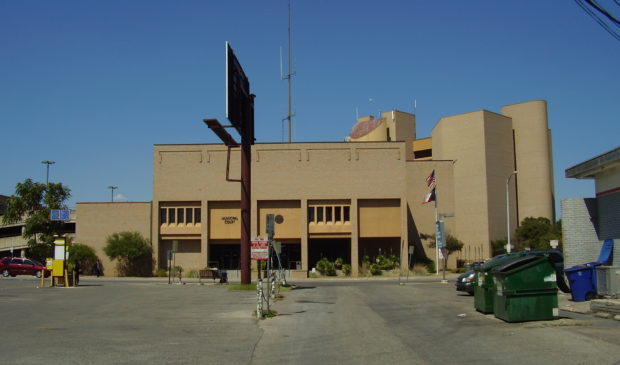Council denies reappointment of five judges
Friday, March 9, 2018 by
Elizabeth Pagano Who judges the judges? On Thursday, it was City Council. Though there was very little dissent on the dais about a recommendation that left five judges without appointments, the public testimony that preceded Council’s vote was critical and, at times, emotional.
Following the lead of its Judicial Committee, Council voted to appoint 18 judges to the Municipal Court. The appointments did not include five current judges: overnight magistrate Erik Cary and part-time substitute judges Beverly Landers, Olivia Ruiz, Celeste Villarreal and Witcher McCullough. The appointments come after a process overhaul put to the test for the first time this year.
Council endorsed the new process and the recommendations of the committee in a vote of 8-0-3, with Council members Ann Kitchen, Ellen Troxclair and Pio Renteria abstaining.
No one voted against the appointments outright, but those Council members that abstained indicated a level of discomfort with the new process, which faced some criticism from members of the public as well as some of the judges that were not recommended for reappointment.
McCullough, Ruiz and Landers all addressed Council during the public hearing.
McCullough said he was disappointed that the process was handled through what he called a “secret committee.” He told Council that he was not given access to the evaluation matrix that determined the recommendations and was told he would have to do an open records request with the city to see it.
“(I) surprisingly learned on Feb. 26 that I was not going to be on this slate,” he said. “I have no clue why I was not included on this list.”
Landers, who has been a municipal judge for more than 21 years, was visibly upset during her testimony. Though she asked to be removed from consideration for reappointment, she decried the process and its lack of transparency. “I have a problem with how the subcommittee (handled) the information it was given and the way it was brought to you. You may have a problem with me because I have a problem with that,” she said. “There was an agenda from the beginning.”
Saying it was a difficult decision, Kitchen explained her abstention saying she believed the new process was better, but she was “just not comfortable” with a process that did not allow judges to address allegations against them. “I reviewed the record myself, and I just did not see the level of documentation that I would have wanted,” she said.
However, the new process was staunchly defended by members of the judicial panel that made its recommendations to the Judicial Committee, members of the committee itself and some members of the public. They saw the changes as a positive move toward holding the Municipal Court to a higher standard, and away from a tradition of unscrutinized political appointments.
Members of the judicial panel explained that those judges that were not recommended for reappointment were rejected unanimously by the panel, which was composed of legal experts that included both defense attorneys and prosecutors. Among the materials that the panel members used to make their recommendations were essays penned by each judge, though they did not speak directly with any of the judges up for reappointment as part of their review.
Criminal defense lawyer Betty Blackwell, who has been a member of Municipal Court review panels for the past 25 years, was also a member of this year’s panel. “I have to say: This one, we got the most information we’ve ever had. We had the largest number of attorneys (on the panel), with a cross-section from civil, criminal, prosecutor, Texas Fair Defense Fund – it was an incredible group of people to work with,” she said, noting the array of information and sources of information they received. “We really worked very hard to try to do a good job.”
Activist Kathy Mitchell thanked Council for the new process and for the work toward evaluating Municipal Court judges based on new criteria. “I think this is the kind of thing that cities all across the country should look to. … I’m not aware that it was a secret,” she said, listing members of the panel. “It was many people that were well-respected and known in this community. I don’t believe they were in a secret process. … It was an attempt to evaluate all the judges along the same parameters. That is something that’s very rare. Up until now this has been, essentially, a political appointment.”
Council Member Delia Garza, a member of the Judicial Committee, reiterated comments she made during the committee meeting, and dismissed the idea that the evaluations were secretive.
“We’re allowed to have those discussions behind closed doors, because they are personnel issues,” she said. “These jobs are not guaranteed to anybody. … These are really powerful positions, and we expect a lot from the people that serve in these positions. When I heard some of the scenarios about judge demeanor, it was very disappointing to hear.”
Council Member Jimmy Flannigan, who chairs the Judicial Committee, said he looked forward to completing the process with an additional round of appointments in the coming months.
Photo by WhisperToMe (Own work) [Public domain], via Wikimedia Commons.
The Austin Monitor’s work is made possible by donations from the community. Though our reporting covers donors from time to time, we are careful to keep business and editorial efforts separate while maintaining transparency. A complete list of donors is available here, and our code of ethics is explained here.
You're a community leader
And we’re honored you look to us for serious, in-depth news. You know a strong community needs local and dedicated watchdog reporting. We’re here for you and that won’t change. Now will you take the powerful next step and support our nonprofit news organization?









